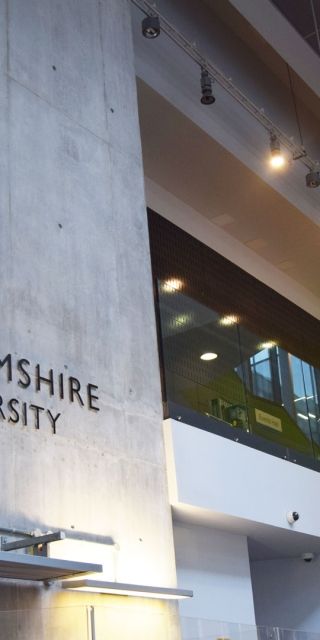
Surgical First Assistant - Perioperative Practice
- Study Mode: Part Time
- Location: High Wycombe / Distance Learning
- Duration: 20 Weeks
- Start Date: September 2026 and January 2027
This short course will help you develop the skills and knowledge needed to successfully undertake the role of a Surgical First Assistant. This module runs twice per year, with intakes in September and February.
Our lecturers maintain clinical currency by working in practice to ensure you receive the most up-to-date insights and training.
Credits: 20 credits at Level 6.
Why study this subject?
This module is for anyone currently working in a scrub role within the perioperative environment with ambitions to undertake the role of the Surgical First Assistant.
Why study at Buckinghamshire New University?
Led by our supportive and experienced staff, the content of this programme has been mapped to reflect the content and learning outcomes of The Association for Perioperative Practice, Surgical First Assistant competency toolkit. A hybrid approach to delivery is undertaken on this module, there are 8 online study days and 1 face to face day (which take place on our High Wycombe campus).
Due to the extended nature of the Surgical First Assistant, there are some additional requirements that need to be met:
- you must be a registered practitioner, currently be employed within the theatre environment; with a minimum of 12 months experience in the scrub role.
- completion of a Theatre manager approval form highlighting that the hospital/trust accepts vicarious liability for you, updated job description to highlight this extended role, local policy in place which supports the SFA role and a risk assessment for the extended role (evidence of these pre-requisites will be requested by the module lead upon application).
- the allocation/agreement of appropriate mentors: consultant surgeons in two speciality areas, one of which must cover laparoscopic surgery; a senior practitioner (registered Nurse or ODP), who also has a mentorship award and is currently in or familiar with advanced roles (Surgical First Assistant or higher) to oversee the whole of your training
- it's also advisable to have completed or have arranged an in-house catheterisation course prior to starting the module in order to meet local policy requirements
- during this module you'll need to undertake 100 hours performing the role of the Surgical First Assistant.
Key themes:
- patient safety, comfort and dignity
- leadership
- key drivers and contemporary issues in practice.
Skills and knowledge for practice:
- the holistic care and management of patients during the surgical phase
- care planning to meet the patient's health and safety needs
- infection prevention
- environmental safety
- preparing for specimens
- role of the surgical first assistant in the perioperative team
- preparation and maintenance of the sterile field
- complications of surgery
- the disease process (anatomy and physiology related to surgery)
- complex patient care (trauma or non-scheduled surgery).
Under the direct supervision of the operating surgeon:
- pre and post-operative patient visits
- patient positioning
- catheterisation
- skin preparation
- draping
- retraction
- cutting of sutures
- surgical haemostasis
- camera holding for minimally invasive surgery
- surgical dressings.
Working as a professional:
- professional, inter-professional, legal and ethical aspects of perioperative practice and the impact on the patient
- concepts of communication and the provision of efficient and effective services
- evaluate and critique evidence to inform practice.
What are the tuition fees
Home
-
Home, Academic Year 2026 - 2027: £1,370 *
Please note all of the 2026/27 academic year fees stated are subject to parliamentary procedure. Tuition fees are expected to increase each academic year in line with the maximum permitted value set by the Government for that academic year. The expected rise for Home undergraduate students (including those on a foundation year course), may impact both new and continuing students.
Course leader




